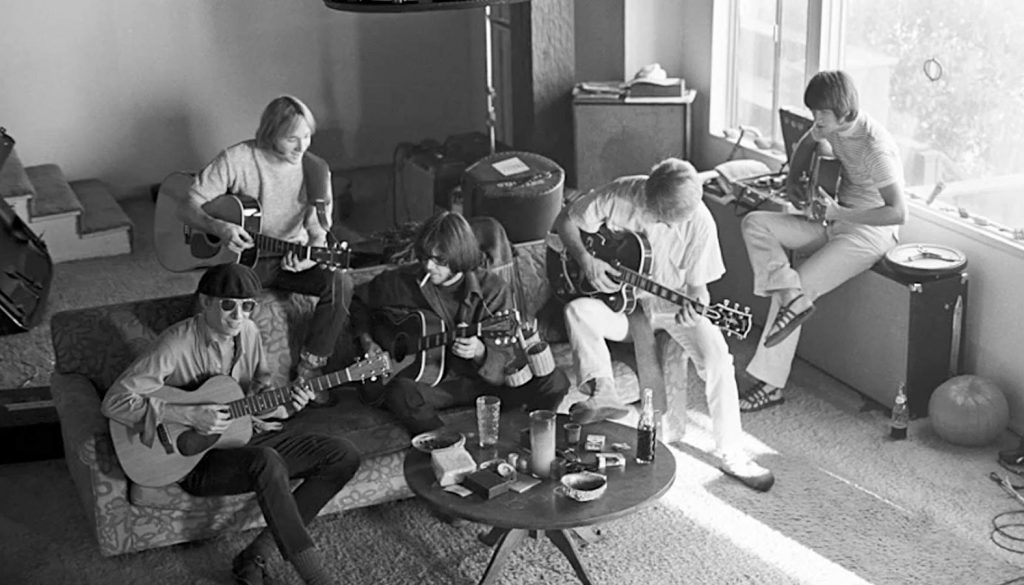I just sat down and watched the documentary “Echo in the Canyon” on Netflix. It’s the tale of the remarkable point in time when mid-1960s Laurel Canyon seemed to be the moral equivalent of a Paris salon in the 1920s. The list of influential rock musicians who either called the canyon their home or made regular pilgrimages there represents a who’s who of Rock and Roll Hall of Fame members. Sadly, more than a few of the voices from that era are silenced, having succumbed to their own reckless ways.
But despite the hedonism of their time and the excesses that claimed the lives of many of their compatriots, a good deal of the music makers are still around and, in this film, fill the role of storytellers. They tell their stories to Jakob Dylan (son of Bob), who was at times a fanboy, musical archaeologist, and modern-day interpreter of some of the more famous songs this era and this geographic location produced in live performances of timeless classics that pop up throughout the documentary.
The resounding themes of the documentary pounded home with every sound mix of a song by the Byrds, the Beach Boys, or Buffalo Springfield: how intervened the music was to the lifestyle — more precisely, the bohemian and libertine excesses that echoed as loudly as the musical notes in Laurel Canyon at this time.
The years have not been so kind to the surviving denizens of Laurel Canyon who managed to survive this epoch. The once young and vibrant singer of The Mamas and the Papas looks like the grandma next door, and the craggy faces and liver spots are as profound as all the documentary subjects’ sense of self-importance.
Now, I liked the documentary. I love the music from this part of my childhood, but the documentary hinges on the lynchpin of the baby-boom generation. They still believe, as septuagenarians, what they believed when they were 19.
I know, this all makes me sound so “unwoke” and unenlightened to suggest the “no-holds-barred” approach to a life of drugs, sexual promiscuity, and do-it-yourself pagan mysticism was a bad thing. Blame my dad.
Just a few short miles from Laurel Canyon Boulevard at this very time, in the “flatlands” of the Valley, our dad, like John Wayne at the Alamo, was determined to keep the worst parts of the popular culture in the 1960s at bay. Our dad was not some kind of uber-Catholic — well, in a way he was — but he was also someone who regular consumed pop culture, especially the movies.
If you suggested John Wayne was not the world’s greatest actor, you were going to get an argument. And when it came to Catholic stars of his era, he took a kind of pride in their personal and public successes and was pained by their personal and public failures.
He warned us about the Beatles. We did not heed his musical advice. But as much as we loved all the irresistible force of the music from the ’60s and ’70s in our household (out of earshot from our pop, of course), the music always came up against the immovable object of our dad.
He managed, along with our mom, to build a wonderful Catholic fortress for us, and none of my brothers and sisters “bought” the other stuff the culture was selling, the same thing the musicians in 1960s Laurel Canyon were peddling.
Due to the ample amounts of that music my brothers and sisters consumed, at least those of us in the “second wave” of our family dynamic, it amazes me a little that at least one of us might have taken the bait and been lost to the culture. There were plenty of kids we grew up with, kids who went to the same parish school and the same Catholic high schools we did that did not come out of this time period unscathed.
Why us? I think I must blame our dad again.
He keeps popping up in my life recently. He’s been gone for more than 30 years, yet he still wields influence on his children, an influence that directed us not only into the bosom of the Church from the cradle, but kept us there, every one of us.
And now, as they make movies nostalgic for that time and show us how the avant-garde has become commonplace and part of our everyday culture, our dad comes off as the ultimate countercultural icon.
Somebody should make a documentary about that.

